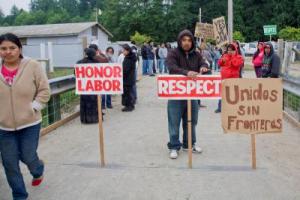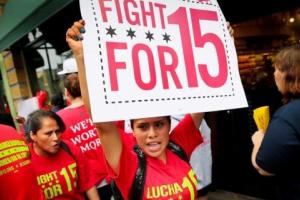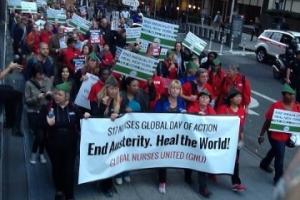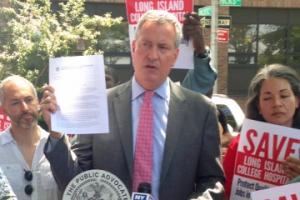Immigration Bill’s New Bracero Program Will Hurt Farmworkers
Labor Notes
 One of the most important parts of the Senate's bill, and of all the "comprehensive immigration reform" proposals, is a big increase in guestworker programs. Employers demand them as a price for supporting legalization of the undocumented. But our history tells us that this is a very high price. Especially for farmworkers, guestworker programs have been a terrible idea.
One of the most important parts of the Senate's bill, and of all the "comprehensive immigration reform" proposals, is a big increase in guestworker programs. Employers demand them as a price for supporting legalization of the undocumented. But our history tells us that this is a very high price. Especially for farmworkers, guestworker programs have been a terrible idea.






Spread the word